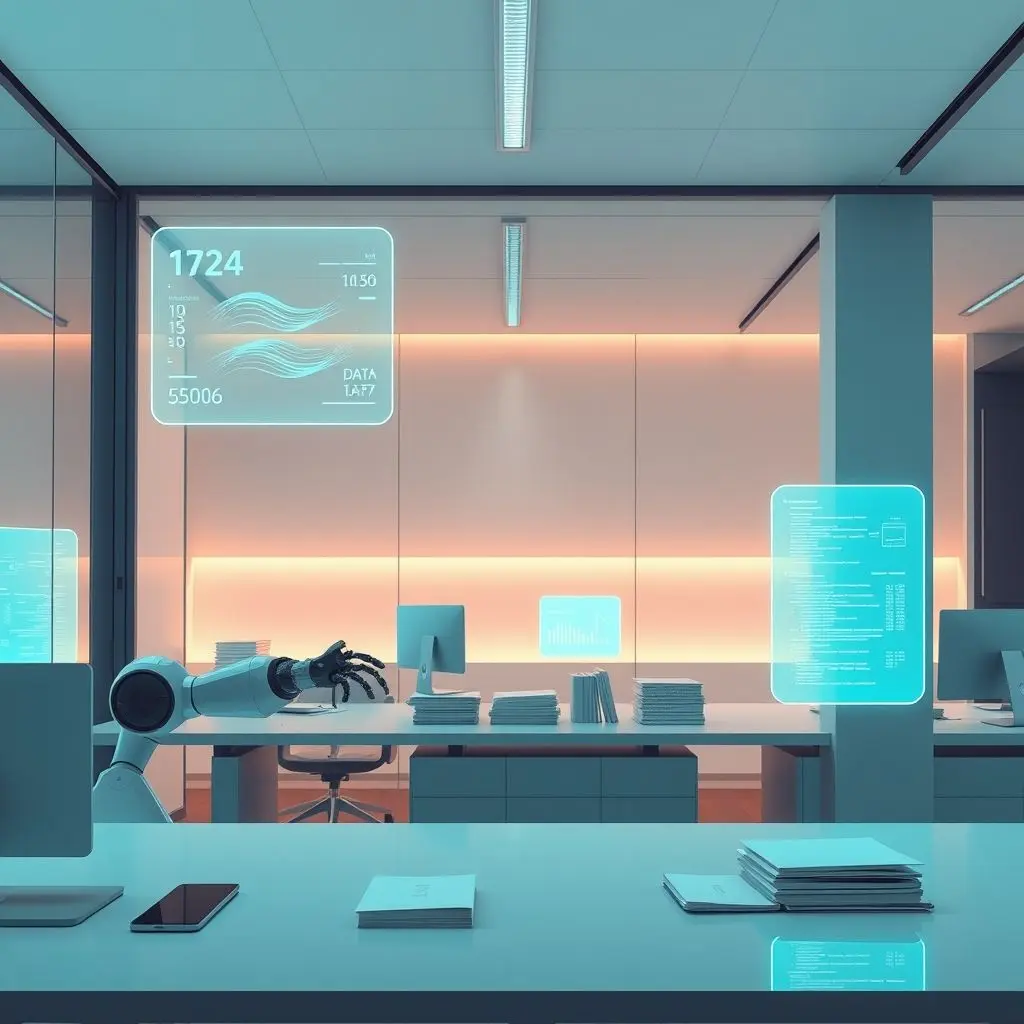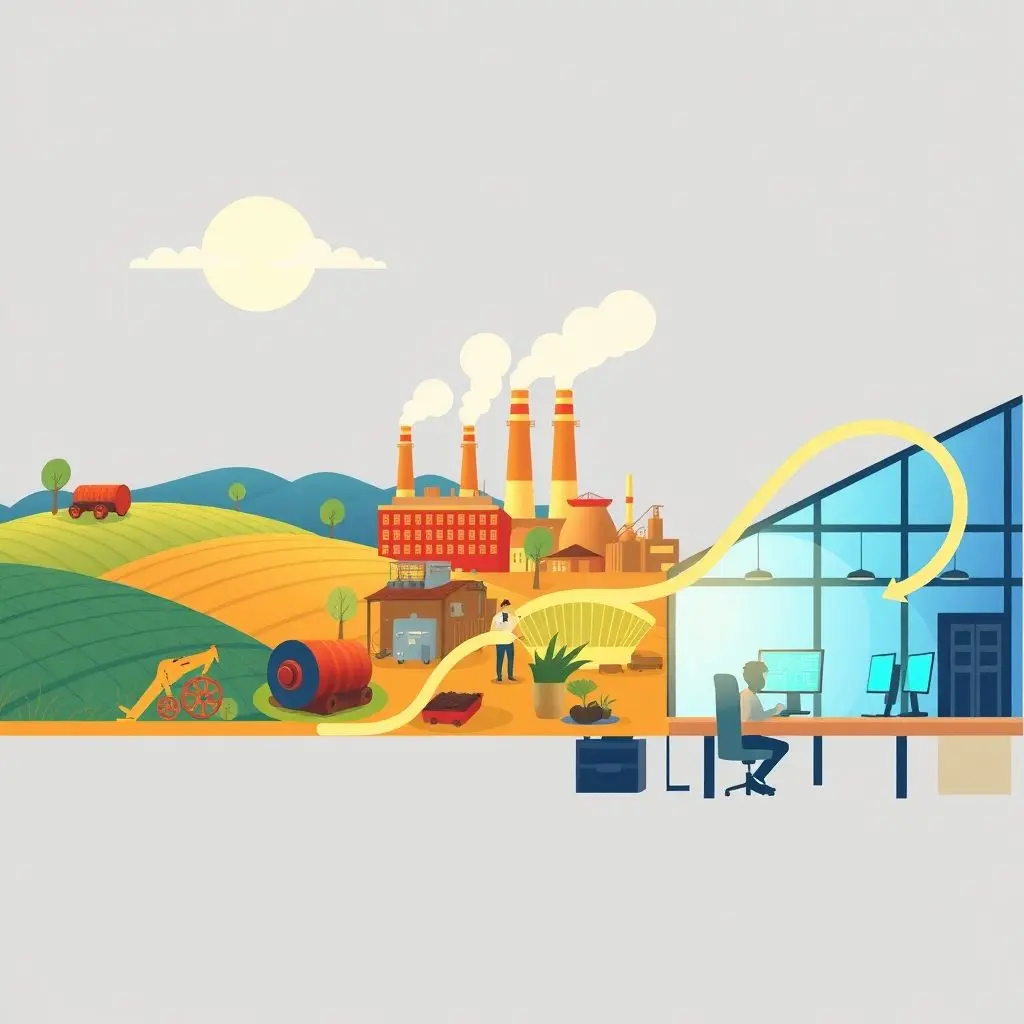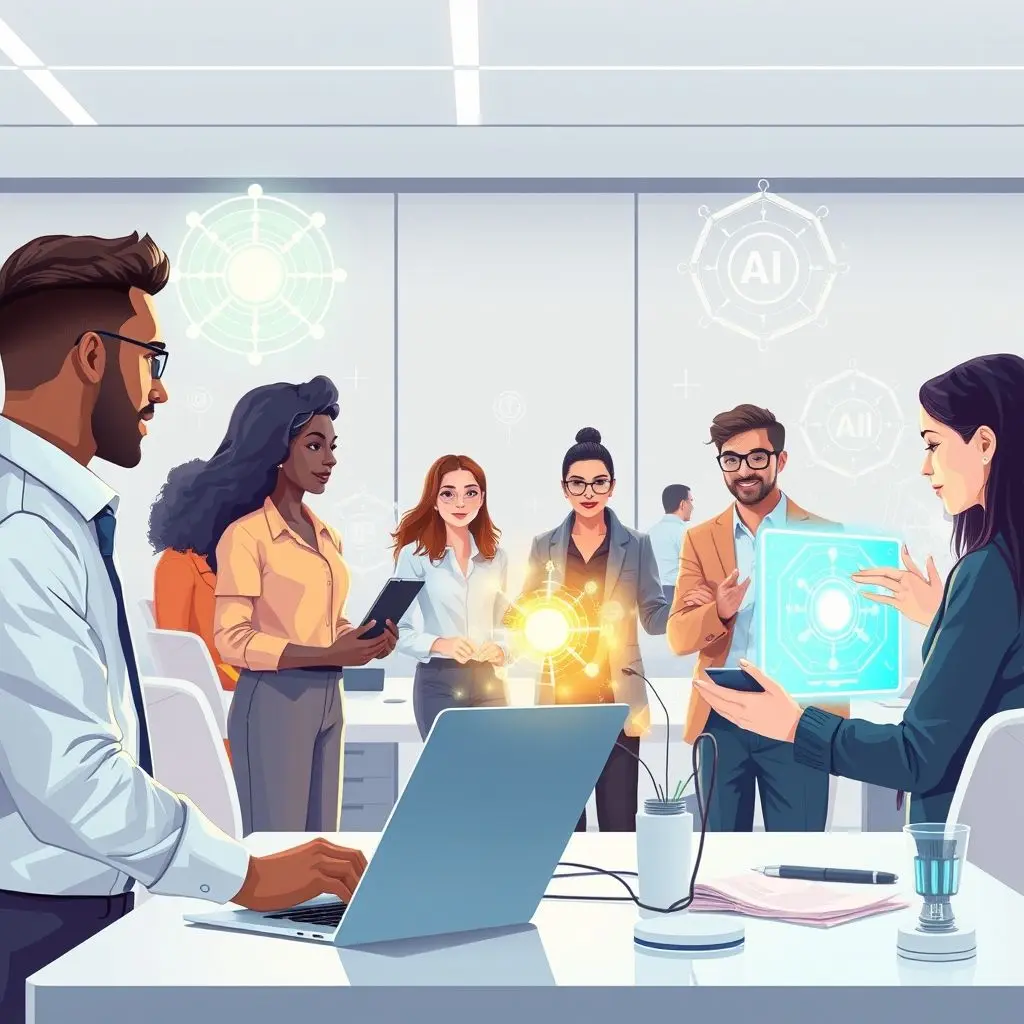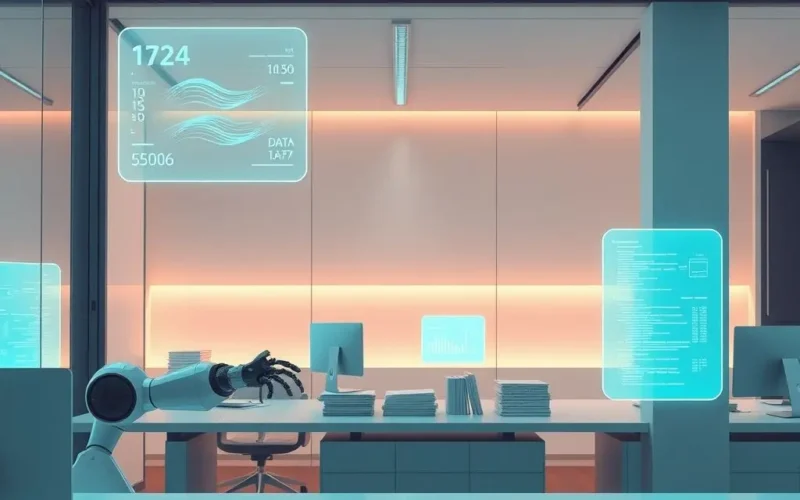Panic much? If you’ve been anywhere near the internet lately, you’ve likely heard the whispers – or maybe outright shouts – that Artificial Intelligence (AI) is gearing up to snatch every single job on the planet, possibly by sunrise tomorrow. It’s a gripping narrative, straight out of a sci-fi thriller, but let’s pump the brakes for a minute. Is this total, immediate job apocalypse scenario actually the reality we’re facing?
Spoiler alert: probably not. The idea of AI conducting a complete takeover of the workforce overnight is, well, a tad dramatic. While AI is undoubtedly a transformative force, reshaping industries and roles at a rapid pace, the notion of it eliminating *all* jobs *tomorrow* is more myth than fact. Think of it less as the Terminator marching into your office and more as a powerful new tool arriving on the scene.
We recently put together a quick take on this very panic-inducing myth in a YouTube Short. If you prefer your reality checks delivered fast and visual, take a peek:
As our short points out, while AI is brilliant at certain things – like wading through mountains of data in seconds, automating repetitive processes, and spotting patterns humans might miss – it hits a wall when it comes to what makes us, well, human.
Table of Contents
AI’s Superpowers vs. Human Strengths
Let’s get specific about what AI excels at and where its current limitations lie. Understanding this is crucial to dispelling the myth of a total takeover.
Where AI Shines: Efficiency and Scale
- Data Processing & Analysis: AI can analyze vast datasets far quicker and more accurately than humans. Think fraud detection, medical image analysis, or identifying market trends.
- Automation of Repetitive Tasks: Mundane, rule-based jobs? Perfect candidates for AI automation. Data entry, routine customer service inquiries, simple report generation – these are increasingly handled by algorithms.
- Optimization: AI can optimize logistics, supply chains, energy consumption, and more, leading to significant efficiencies.
- Pattern Recognition: Identifying complex patterns in images, sounds, or data streams is an AI forte.
These capabilities mean AI is excellent at augmenting existing roles or automating specific tasks *within* a job. It’s about doing things faster, cheaper, and at a scale previously impossible.

Where Humans Reign Supreme: The Uniquely Human Element
Here’s where the ‘total takeover’ narrative falls apart. AI, in its current form, struggles profoundly with:
- Creativity and Innovation: While AI can generate new combinations based on existing data (like writing basic text or generating images), true novel creativity, conceptualizing entirely new ideas, or artistic expression driven by deep personal experience remains a human domain.
- Complex Problem-Solving: Navigating ambiguous situations, dealing with unforeseen circumstances, applying common sense, and solving problems that require intuition and lateral thinking are beyond current AI capabilities.
- Empathy and Emotional Intelligence: Understanding, responding to, and building rapport with other humans on an emotional level is fundamentally human. Jobs requiring deep interpersonal interaction – therapy, nursing, teaching, sales, management – rely heavily on these skills.
- Strategic Thinking and Decision Making: Setting long-term visions, making high-stakes decisions involving ethical considerations, uncertainty, and human values requires judgment AI lacks.
- Building Relationships and Trust: Human connection, collaboration, negotiation, and leadership built on trust and understanding are skills AI cannot replicate.
Jobs that are heavy on these ‘human’ skills are not only less susceptible to automation but may actually become *more* valuable in an AI-enhanced world.

AI as a Tool, Not Just a Replacement
A more accurate way to view AI’s impact is through the lens of augmentation and collaboration. Just as spreadsheets didn’t eliminate accountants but changed how they worked, or the internet didn’t eliminate journalists but transformed news delivery, AI is likely to augment many roles rather than simply replace them entirely.
- AI as an Assistant: AI tools can act as powerful co-pilots, assisting writers with drafts, designers with generating concepts, doctors with diagnosing illnesses (by analyzing scans), and lawyers with sifting through legal documents.
- AI Enabling New Roles: The rise of AI is creating entirely new job categories: AI trainers, prompt engineers, AI ethicists, AI system supervisors, data scientists focused on AI model development, and many more we haven’t even conceived of yet.
- Focusing on Higher-Level Tasks: By automating the mundane, AI can free up human workers to focus on the more complex, creative, and strategic aspects of their jobs – the parts that are often more engaging and require human judgment.
This shift means many existing jobs won’t disappear but will evolve, requiring new skills to work alongside AI effectively.
Lessons from History: Technology and the Job Market
This isn’t the first time humanity has faced widespread fears about technology rendering vast swathes of the workforce obsolete. The Industrial Revolution, the introduction of computers, the rise of the internet – each wave of technological advancement brought similar anxieties.
Historically, while specific jobs or tasks were automated away, new industries emerged, demanding new skills and creating different kinds of employment. Agricultural jobs declined dramatically with mechanization, but manufacturing soared. When manufacturing automated, the service and information sectors expanded. This suggests a pattern of transformation and adaptation rather than total elimination.
The key difference with AI is the pace and breadth of change. AI’s ability to impact white-collar jobs and tasks previously thought immune to automation makes this transition uniquely challenging, but the fundamental principle – that technology changes the nature of work and creates new opportunities – remains relevant.

Skills That Become Your Superpower in the AI Age
If routine tasks are increasingly automated, what skills should you cultivate? The answer lies in doubling down on those uniquely human capabilities that AI lacks:
- Critical Thinking & Complex Problem Solving: AI provides data and analysis, but humans are needed to interpret, question, and make nuanced decisions.
- Creativity & Innovation: The ability to generate novel ideas, design new solutions, and think outside the box.
- Emotional Intelligence & Communication: Empathy, negotiation, collaboration, leadership, and building relationships are indispensable in almost any field.
- Adaptability & Continuous Learning: The future of work will require a willingness to learn new tools (like AI) and adapt to evolving roles constantly.
- Digital Literacy & AI Proficiency: Understanding how AI works, its capabilities and limitations, and how to use AI tools effectively will be crucial for many roles. This doesn’t mean becoming an AI engineer, but being comfortable integrating AI into your workflow.
Focusing on these skills makes you a more valuable asset, capable of working *with* AI to achieve outcomes neither could alone.
Navigating the Transition, Not Surviving the Apocalypse
Instead of bracing for an overnight job apocalypse, it’s more productive to prepare for a significant transition. This period will require individuals and societies to adapt. Investment in education, upskilling, and reskilling programs will be vital. Businesses will need to rethink workflows and organizational structures to integrate AI effectively and ethically.
The job market isn’t disappearing; it’s evolving. Some jobs will change dramatically, some may decline, but new ones will emerge. The future of work in the age of AI is likely to involve a fascinating partnership between humans and intelligent machines, each bringing their unique strengths to the table.

Your Burning Questions About AI and Jobs, Answered
Will ALL jobs be taken by AI?
Highly unlikely, especially not in the foreseeable future. While many tasks within jobs will be automated, jobs requiring complex human skills like creativity, critical thinking, empathy, and complex decision-making are expected to remain, and even thrive.
Which jobs are most at risk from AI automation?
Jobs that primarily involve highly repetitive, rule-based tasks, or extensive data processing are generally considered more susceptible to automation. Examples often cited include certain data entry roles, basic customer support functions, and routine administrative tasks. However, even these roles might evolve to include supervision or handling exceptions that AI cannot manage.
Will AI create new jobs? How?
Yes, AI is already creating new jobs. This includes roles directly involved in developing and maintaining AI systems (AI engineers, data scientists), roles focused on integrating AI into business processes (AI strategists, implementation specialists), and entirely new jobs focused on managing and interacting with AI (prompt engineers, AI ethicists). Furthermore, increased efficiency from AI can lead to growth in businesses, potentially creating demand in other areas.
What skills should I learn to stay relevant in the age of AI?
Focus on developing skills that leverage uniquely human capabilities: critical thinking, creativity, emotional intelligence, complex problem-solving, communication, and collaboration. Alongside these, digital literacy and the ability to work with AI tools will be increasingly important.
Is it just a transition, or will unemployment rise permanently?
Economists and researchers have varying predictions. The historical pattern suggests technological transitions cause temporary disruption and job shifts, leading to new forms of employment. However, the speed of AI advancement means adaptation is key. Permanent widespread unemployment isn’t a foregone conclusion, but significant societal and educational adjustments will likely be necessary to ensure a smooth transition for the workforce.
Looking Ahead: An Era of Transformation
So, let’s ditch the doomsday headlines about AI taking over *all* our jobs *tomorrow*. The reality is far more complex and, frankly, more interesting. We are entering an era of significant transformation, where AI becomes a powerful collaborator, changing how we work, learn, and interact. The focus shifts from fearing replacement to embracing augmentation and cultivating the skills that make us indispensable. It’s a challenge, yes, but also an opportunity to redefine the relationship between humans and technology for the better.
Want more reality checks on tech trends? Hit that like button and subscribe faster than AI can write a basic email!





